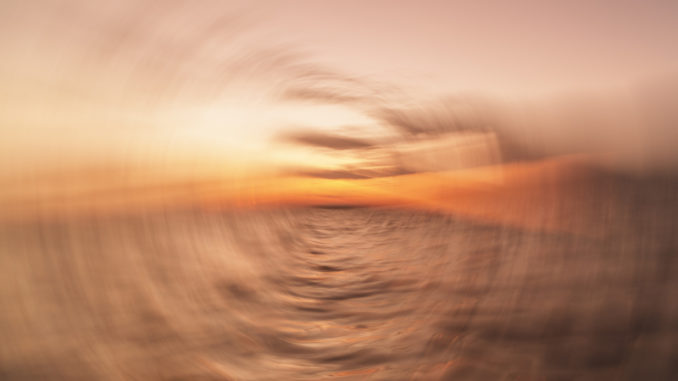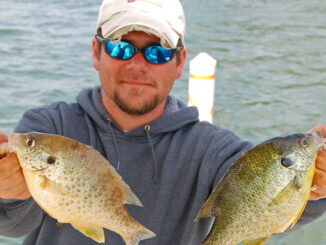
Every human being is prone to seasickness at some point
Around 100 SCDNR marine staff took a survey about seasickness. Here’s how they said they would describe the experience.
Whether it’s weekly sampling in small boats or weeks-long expeditions offshore, SCDNR’s marine biologists spend regular time on the water. And for most of them, seasickness is an unfortunate fact of life.
Motion sickness is an oft-experienced but seldom-discussed malady. It is caused by an imbalance between what the inner ear feels and what the eyes see in a moving car, vessel, or plane. An estimated 30% of the population are considered highly susceptible. But almost anyone can suffer from motion sickness under the wrong conditions.
Fortunately,you can take steps to lessen both your chances of becoming seasick and your misery if it strikes.
We surveyed our marine staff on all things seasickness, with questions ranging from its causes to treatment options to worst experiences. Around 100 SCDNR biologists, educators, captains, and deckhands responded. They offered many decades’ worth of wisdom on one of life’s most unpleasant experiences.
Today, we’re sharing five takeaways from the survey – reminders for fellow seasick boaters that should soothe your ego, if not your stomach. Next week, we’ll follow up with a story detailing specific strategies for preventing and addressing motion sickness on the high seas.
You’re Not Alone
You might think that jobs in marine biology self-select for iron-stomached individuals. In fact, eighty percent of our survey respondents said they’d been seasick in some capacity before. The majority experienced it more than just once or twice.
Although research has shown higher susceptibility in women and lower susceptibility in the elderly, motion sickness can beset anyone – salty veterans and seafaring novices alike. It’s not a personal failing or sign of frailty. Rather, it is an unlucky affliction influenced by a complex set of factors (including, even, your genetics).
“Everyone ‘gets got’ eventually,” one respondent to the survey wrote. “It is something to consider and prepare for seriously, because it can affect you severely both physically and mentally.”
Wave Action is Most Important Factor
When we polled our staff about the most important factors contributing to seasickness, one consideration was a clear outlier.
Over 90% of respondents said that the size of the swell influenced whether or not they felt nauseated. The bigger the wave action, the greater the imbalance between what the body feels and what the eyes/brain process visually. Extreme waves can be debilitating for even the most hardened mariners.
Unpleasant smells (such as diesel fumes and fishy odors) and one’s physical state (i.e., going out while ill) were ranked as important factors by 46% and 45% of respondents, respectively. The size of the boat and one’s proximity to land were deemed less important contributors.
Checking the marine forecast is second nature for those who spend time on the water, but it’s worth reiterating – if you’re prone to motion sickness and have a choice, you’ll have a better time if you avoid going out on days with high wave action.
Things May Get Weird
The misery of severe seasickness can engender some unexpected and extreme mental responses, oftentimes giving the sufferer existential tunnel vision. One of our staffers wrote about feeling progressively sicker aboard an offshore dive trip, until vertigo and nausea reduced them to contemplating the decisions that had brought them there:
“I was wondering why I consciously put myself in these situations, and how I could ever consider that feeling this way would be worth anything,” they wrote. “What is life? Why did life suck so much at this particular moment? Would I ever recover?”
Others jokingly admitted to considering more direct solutions to their suffering:
“After feeling rough for several days, nonstop, I sat down on the side of the boat during off hours for about 20 minutes, debating whether to just roll overboard, so that the horrible feeling would go away. Decided to stick it out,” they added.*
Extreme cases of motion sickness can also create haunting negative associations. One survey respondent wrote about how fetching ice aboard SCDNR’s largest research vessel had become a trigger for nausea. Another wrote about why they are no longer able to drink coffee on research cruises (we’ll spare you the details).
Everyone Handles it Differently
“We were out on the R/V Silver Crescent a few miles offshore in January,” one of our biologists wrote, by way of illustrating how differently people respond to the same marine conditions. “The swell was not too bad, but the type of sampling we were doing required us to align perpendicular to the swell, making the boat roll quite a bit. We already had one staff lose their breakfast. Captain Bo was at the helm, fresh off a bout of the flu. I came off the deck into the cabin, and here was Bo bracing against the counter and making tuna salad from scratch.
“The whole cabin was rocking and rolling, smelled like tuna, and Bo was totally unphased.”
People also have differing opinions about how to respond to seasickness. Severe nausea deprives a person of agency, making throwing up an increasingly tempting option as one of the few actions available to a sick person. But our staff were evenly split about whether vomiting was beneficial or detrimental to the seasick boater.
Most agreed that throwing up will make you feel better – but only temporarily, in all but the mildest cases.
“At a certain point it’s unavoidable,” one person wrote. “Vomiting definitely helps – you feel much better instantly; however, if it’s bad, approximately 15 minutes later you feel bad again and you most likely will vomit again.”
Compassion and Good Humor are Key
Whether you’re among the lucky percentage who don’t get sick or are susceptible like the rest of us, our staff all agreed that maintaining a positive attitude on the water is the key to getting through a rough day. Our biologists underscored the importance of looking out for those who do get sick – and not being hard on yourself if you’re the sick one. Your self esteem may be bruised, but you’ll at least be able to laugh about it later.
One staffer summed it up thusly: “Cry a little if you must, but keep a good attitude; it will pass.”
*Despite the painful memories, SCDNR boasts a 100% survival rate for seasick employees.
—-Many thanks to Erin Weeks for this article, which she wrote for her Coastal Resources blog on the SCDNR website.




Be the first to comment